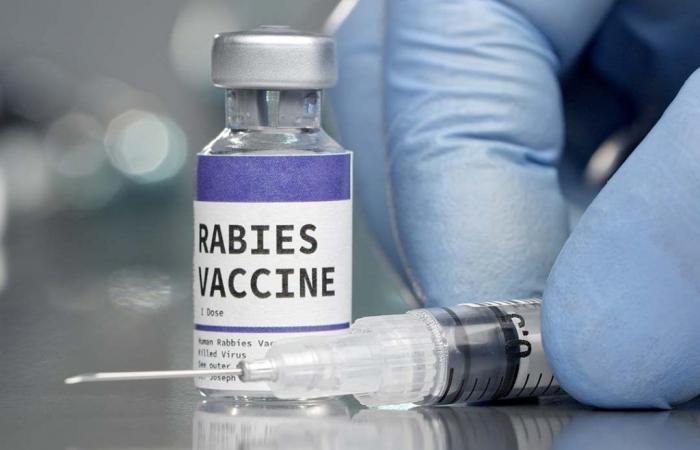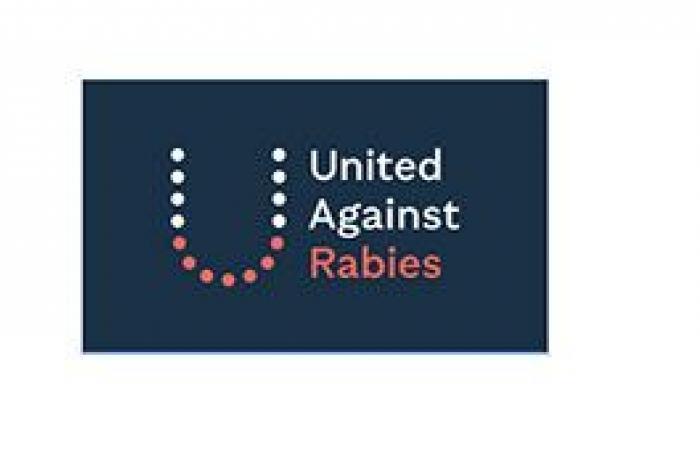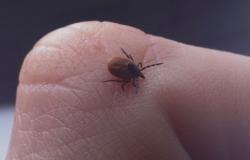June 13, 2024 – Together with its partners, Gavi, the Vaccine Alliance, has announced its support for rabies vaccination for post-exposure prophylaxis (PEP). Guidelines on how to apply for this support under Gavi’s co-financing policy are available to eligible countries. Applications for the first funding cycle are due mid-July 2024. Ninety-five percent (95%) of human rabies deaths occur in Africa and Asia, most often in marginalized communities without access to care.
This new initiative reinforces ongoing global actions as part of the Zero Rage by 2030 campaign. (“Zero by 30“ in English) led by the Forum All united against rabies (United Against Rabies), which brings together the Food and Agriculture Organization of the United Nations (FAO), the World Health Organization (WHO) and the World Organisation for Animal Health (OIE), with the aim of eliminating all human deaths from dog-transmitted rabies by 2030.
“This commitment from Gavi is crucial and will help accelerate efforts to eliminate human rabies of canine origin,” said Dr Jérôme Salomon, WHO Assistant Director-General for Universal Health Coverage and Communicable and Noncommunicable Diseases. “WHO will provide technical assistance to countries, not only to support their funding applications to Gavi, but also to develop comprehensive action plans that will enable real progress towards the target. “Zero rage by 2030”.
In more than 150 countries where canine rabies remains a serious public health problem, stocks of human rabies vaccines available in public health facilities are often extremely limited, particularly in marginalized communities. When the human rabies vaccine is available in private establishments, the cost of the vaccine post-exposure prophylaxis can represent a catastrophic financial burden for families and communities.
“With this programme, Gavi will contribute to the global fight against rabies and save lives by ensuring the availability of human rabies vaccines to those who need them most, particularly vulnerable and marginalised communities who are too often left behind,” said Aurélia Nguyen, program director of Gavi, the Vaccine Alliance.
Rabies is a viral disease, transmitted to humans through the bite of an infected animal, generally a dog (99% of cases). The spread of the virus to the central nervous system, which can take less than a week to a year depending on the case, leads to inflammation of the brain and spinal cord. Symptoms appear when the virus reaches the central nervous system. At this stage the infection is 100% fatal and death occurs within a few days.
Rabies’ mortality and traumatic clinical presentation make it one of the most feared diseases in the world. But infection can be prevented even after exposure to the virus by immediately implementing post-exposure prophylaxis, which consists of careful washing of wounds with soap and water, administration of a quality human rabies vaccine and, if necessary, immunoglobulins.
Gavi had already agreed to include post-exposure rabies vaccination in its 2021–2025 vaccine investment strategy, but the COVID-19 pandemic caused the program to be postponed until mid-2023, when the Gavi Board of Directors took the decision to relaunch it.
“Gavi’s funding is extremely important and a key pillar of the global strategy to prevent deaths from this terrible disease,” said the Professor Lucille Blumberg, president of the forum All united against rage. “But to successfully eliminate human rabies of canine origin, we urgently need to improve data and surveillance, vaccinate dogs and educate the public on what to do if they are bitten and how to avoid being bitten in the first place. Eliminating all human deaths from rabies is within reach if all sectors involved come together to achieve it.”
All countries eligible for Gavi support can apply for funding for prophylactic post-exposure rabies vaccination. The funding will be used to purchase vaccines and associated supplies. Rabies immunoglobulins (RIG) for humans and rabies vaccines for dogs are not covered by this program. Countries are not required to have a national rabies plan to apply under the first multi-year funding cycle, but a national plan will be required for all subsequent applications.
For 2024, funding applications must be received by Gavi by 15 July and 23 September; thereafter, funding windows will be opened three times a year.







